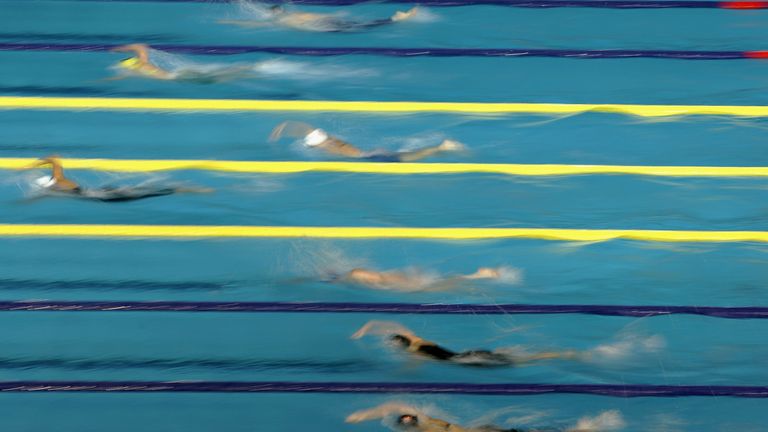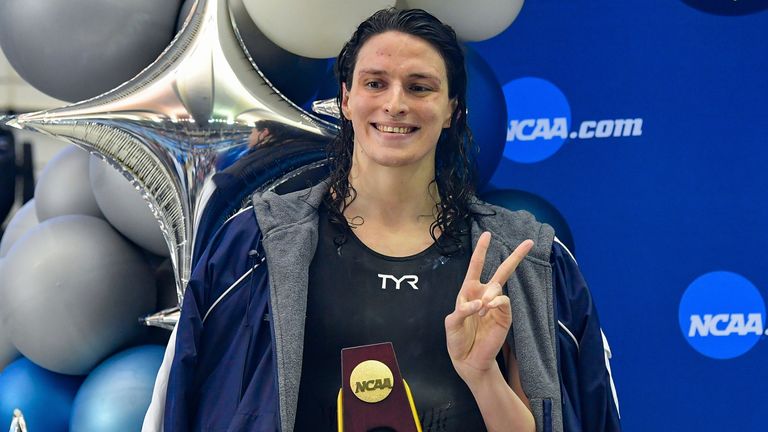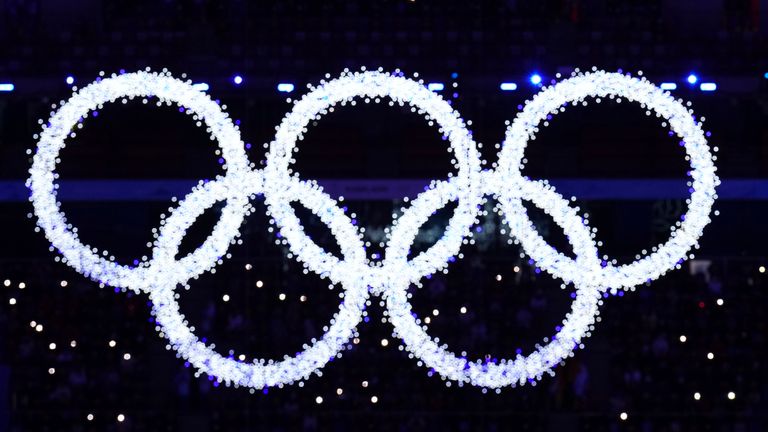The decision was made during FINA’s extraordinary general congress on the sidelines of the world championships in Budapest after members heard a report from a transgender task force comprising leading medical, legal and sports figures
Last Updated: 19/06/22 4:44pm

Swimming’s world governing body FINA has voted to restrict the participation of transgender athletes in elite women’s competitions and create a working group to establish an “open” category.
The decision was made during FINA’s extraordinary general congress on the sidelines of the world championships in Budapest after members heard a report from a transgender task force comprising leading medical, legal and sports figures.
The new policy will require transgender competitors to have completed their transition by the age of 12 in order to be able to compete in women’s competitions.
The policy was passed with a roughly 71 per cent majority after it was put to the members of 152 national federations with voting rights who had gathered for the congress at the Puskas Arena.

The debate intensified after University of Pennsylvania swimmer Lia Thomas became the first transgender NCAA champion in Division I history
Transgender rights has become a major talking point as sports seek to balance inclusivity while ensuring there is no unfair advantage.
The debate intensified after University of Pennsylvania swimmer Lia Thomas became the first transgender NCAA champion in Division I history after winning the women’s 500-yard freestyle earlier this year.
It followed New Zealand weightlifter Laurel Hubbard becoming the first transgender athlete to compete at the Olympic Games in Tokyo last year.
Bach: No one-size-fits-all approach for transgender athletes

Sport cannot have a one-size-fits-all approach to transgender inclusion, International Olympic Committee president Thomas Bach said in May.
Controversies over the participation of transgender athletes in female categories have hit the headlines in cycling, swimming, weightlifting and other sports over the past year.
Olympic cycling champion Katie Archibald criticised the global governing body in her sport, the UCI, last month over its transgender policies, with trans athlete Emily Bridges ultimately excluded from the British Omnium Championships.
Lord Coe, the president of World Athletics, said the integrity of women’s sport was “fragile” if federations did not get this right.
There have been calls to create an open category which transgender athletes could enter.
Bach said the IOC has and will continue to assist sports in coming to “science-based decisions”.
He told a press conference in May: “There is no one-size-fits-all solution. I think we all agree that this is about creating a fair competition. On the grassroots level, sport has to be inclusive, everybody has to have the access to sport.
“When it comes to competition as sport, we have to ensure fair competition. That means that you have to find out sport by sport, even discipline by discipline, where there is maybe an unfair advantage.
“You cannot compare an athlete in equestrian with a weightlifter for instance. You cannot even compare in athletics a hammer thrower with a 5,000 metre runner. And this is why the IOC has established guidelines, how to make this decision, how to evaluate where there is maybe an unfair advantage and where it’s not.
“And these guidelines, they say very clearly that all these decisions have to be based on scientific evidence.
“That’s the approach, and now we are in contact with different international federations to give them the necessary interpretations whenever they need, to provide them also with the names of experts they can consult.”

